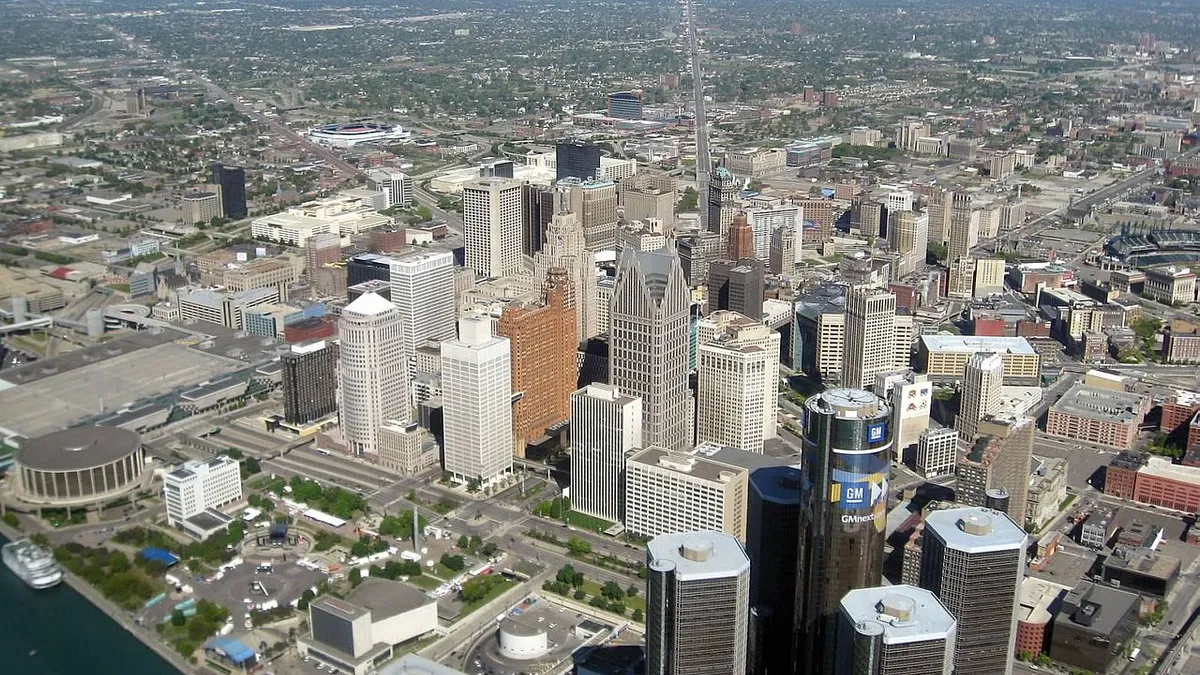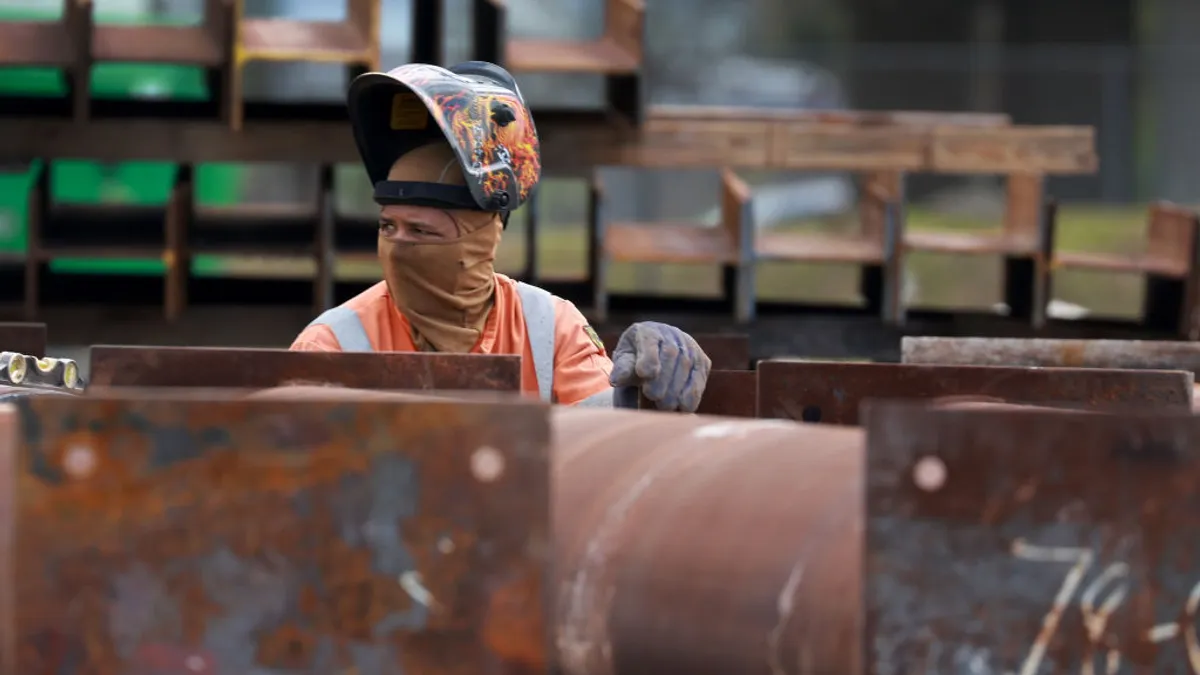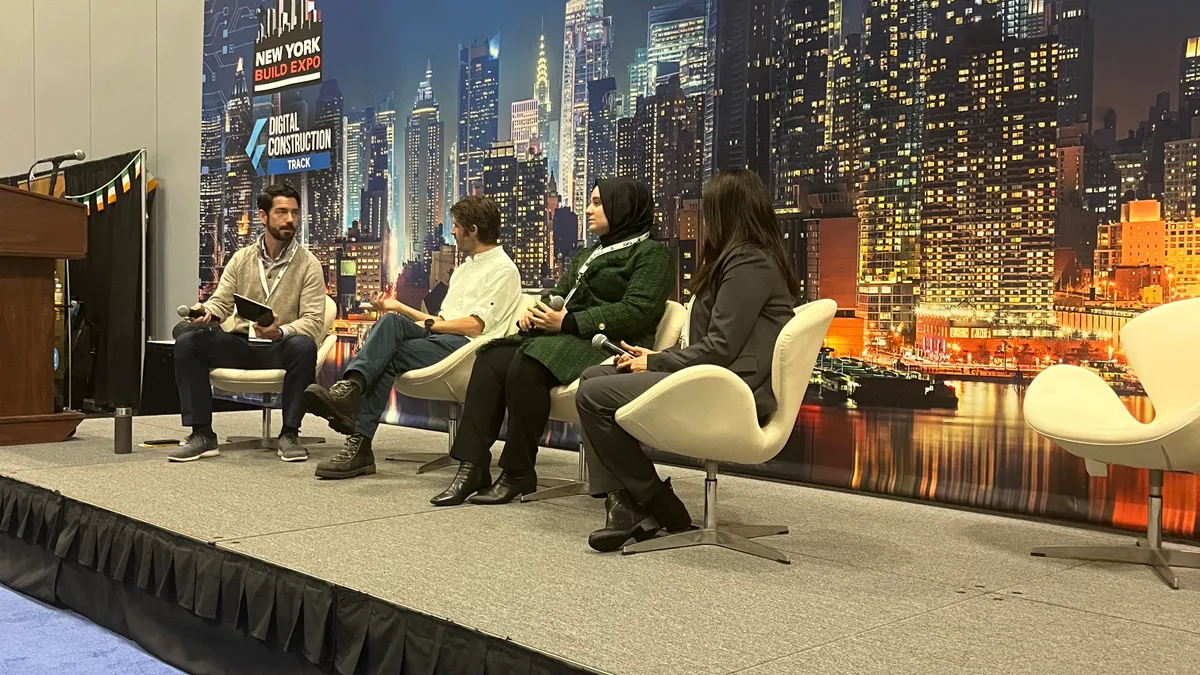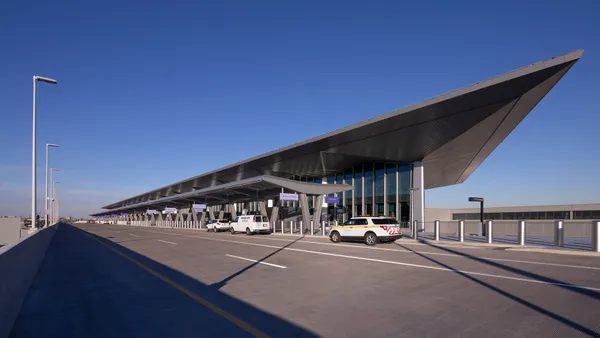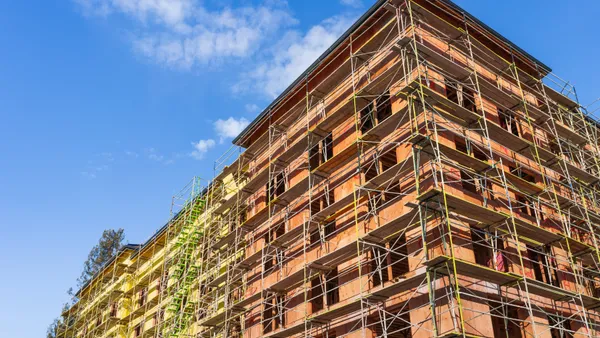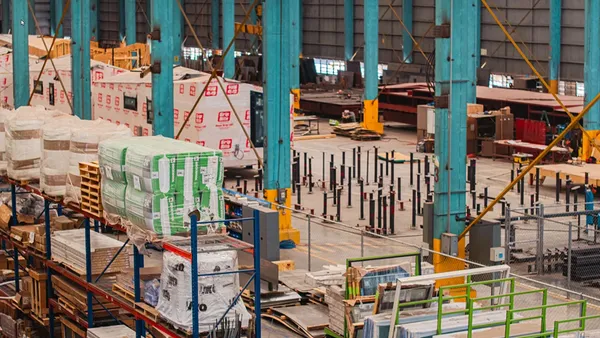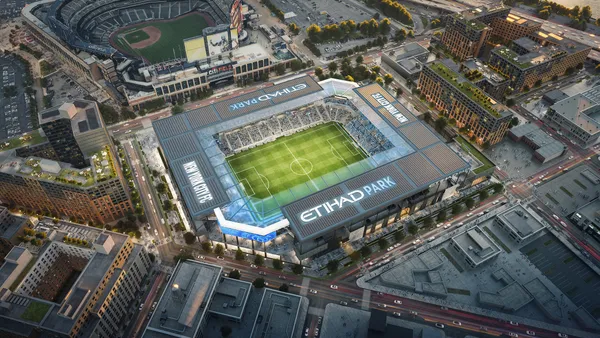Dive Brief:
- The Michigan Economic Development Corp. announced Tuesday that it has authorized, through its Michigan Strategic Initiative, the redevelopment of brownfield sites in downtown Detroit, according to a plan offered up by billionaire Quicken loan founder Dan Gilbert's Bedrock Management Services. The approval will generate an expected $2.1 billion through the initiative's financing tools.
- The money is earmarked for four separate projects under one Transformational Brownfield Plan, and one of those projects is the construction of a $909 million, 800-foot tower – slated to be the tallest in Detroit – on the former site of an iconic city department store. The other three projects are a mixed-use building on multiple sites known as the Monroe Blocks; an expansion of the One Campus Martius building, where Quicken Loans is a tenant; and the renovation of two historic structures, the Book Building and Book Tower. The plan for the last two is to create room for office and retail space and possibly for a hotel as well.
- The initiative's approval will allow Bedrock to capture several taxes during various phases of construction and development. The expected net benefit for the state is $3.20 in revenue for every $1 generated for the project through the initiative. In addition, according to REBusinessOnline, all four projects will result in the creation of 15,000 temporary construction jobs.
Dive Insight:
Michigan lawmakers, back in 2017, approved legislation that authorized developers of certain brownfield projects to capture state sales, withholding and income taxes and put that money toward redevelopment, as long as those properties end up providing a net-positive economic benefit for the state. Some property used in redevelopment are also exempt from taxes.
Gilbert scored big on these developments, but city and state financing through the handing over of tax revenue isn't anything new. As long as local lawmakers believe that helping to subsidize construction and development will draw even greater financial payoffs for their cities and states, the incentives continue to flow.
In Las Vegas, the Oakland Raiders are preparing an almost $2 billion home through the construction of a new NFL stadium. The state agreed to foot $750 million of the bill, and that will be paid through a new county hotel tax. Also, as part of its plans to build a $2.3 billion Red Line rail extension, the Chicago Transit Authority is considering the creation of a transit-specific Tax Increment Financing (TIF) district to help pay for it. The TIF is a financing tool the authority has used before, one that is expected to generate more than $850 million for another Red Line project.


